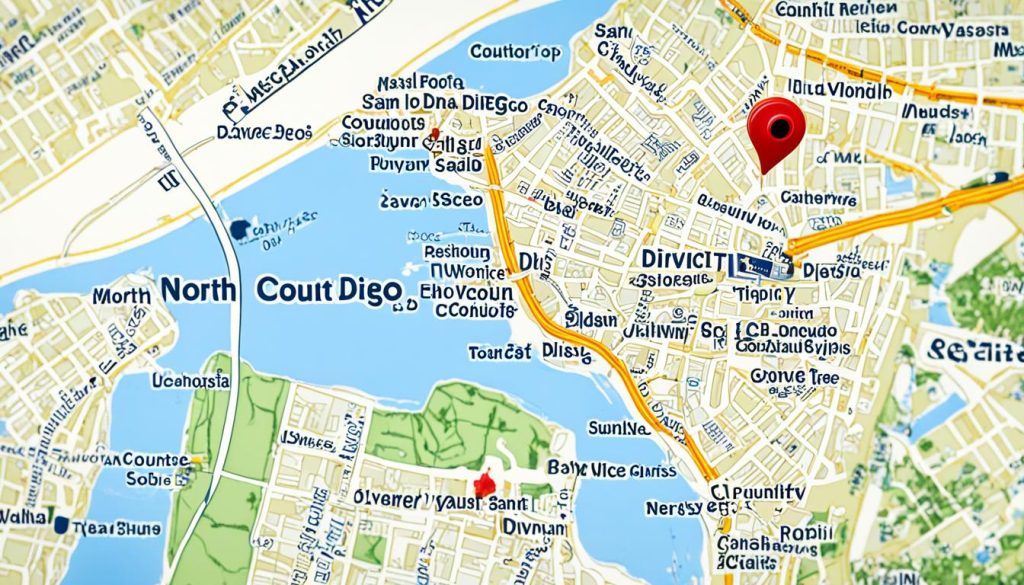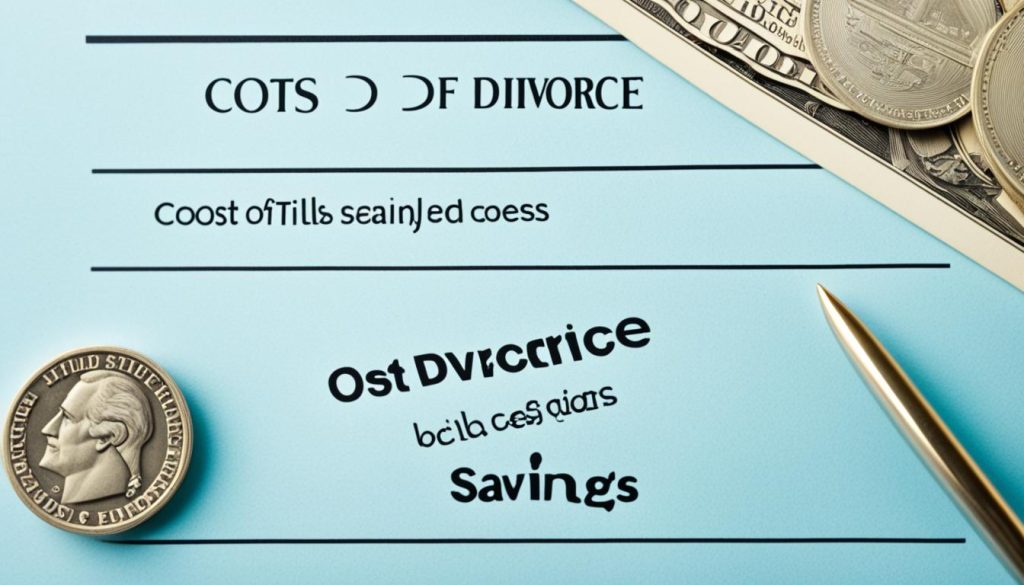Divorce can be a challenging and emotionally taxing process, but with the help of a skilled divorce attorney in North County San Diego, you can navigate the complexities and ensure a fair outcome. From filing for divorce to property division, child custody, and spousal support, a divorce attorney will provide you with expert counsel and guide you through every step of the process.
Key Takeaways:
- An experienced divorce attorney in North County San Diego can help you navigate the complexities of divorce.
- They can provide expert counsel on issues such as property division, child custody, and spousal support.
- Divorce attorneys specialize in family law and have the knowledge and experience to protect your rights and interests.
- They can guide you through the entire divorce process, ensuring that you understand your options and make informed decisions.
- Consulting with a divorce attorney is essential to achieve a fair outcome and minimize the emotional and financial strain of divorce.
Understanding Divorce Options and Your Rights
When going through a divorce in North County San Diego, it’s important to understand the various options available to you. Each option has its own benefits and considerations, and finding the one that aligns with your needs can help make the process smoother and more amicable.
Divorce Mediation
One popular option is divorce mediation, where a trained mediator helps you and your spouse reach a mutually agreeable settlement. This process encourages open communication and problem-solving while reducing the need for contentious litigation. With the guidance of a mediator, you can discuss issues such as child custody, property division, and spousal support, with the goal of finding a fair resolution.
Collaborative Divorce
Collaborative divorce is another option that involves working with a team of professionals to find collaborative solutions. This team can include attorneys, financial experts, and mental health professionals who specialize in divorce. By working together, you and your spouse can address both legal and personal concerns more effectively, ultimately reaching an agreement that prioritizes the well-being of everyone involved.
Unbundling
Unbundling, also known as limited-scope representation, allows you to choose specific legal services that you need. This option can be cost-effective and flexible, as you only pay for the services you require. For example, you may choose to hire a divorce attorney to help with document preparation or provide legal advice on specific issues. Unbundling can be particularly helpful if you and your spouse are already in agreement on certain aspects of the divorce.
Divorce Litigation
In some cases, litigation may be necessary to protect your rights. If negotiations and alternative dispute resolution methods fail, a divorce attorney who specializes in family law can represent you in court and advocate for your interests. They will navigate the legal process, ensure all necessary documentation is filed correctly, and present your case before a judge if required. With a skilled attorney by your side, you can have confidence in protecting your rights and achieving a fair outcome.
Understanding your divorce options and consulting with a knowledgeable divorce attorney in North County San Diego can help you make informed decisions about your rights and the best path forward. They will guide you through the complexities of each option, ensuring you have the necessary information to choose the approach that suits your unique circumstances.
Gray Divorce: Navigating Divorce After a Long-Term Marriage
Gray divorce, also known as divorce after a long-term marriage, can be a complex and challenging process. When couples decide to separate after spending many years together, there are unique considerations to be made.
One of the key aspects in a gray divorce is the division of property. After being married for a substantial amount of time, there tends to be larger and more intricate assets involved. This can include shared retirement accounts, joint business ventures, and property acquired during the course of the marriage.
It is essential to have an experienced divorce attorney in North County San Diego to guide you through the complexities of a gray divorce and help protect your assets. They will work closely with you to ensure a fair and equitable division of property.
In addition to property division, there may also be considerations for alimony or spousal support. These financial arrangements are especially important in cases where one spouse may have been financially dependent on the other throughout the marriage. A divorce attorney can help you navigate the legal landscape and advocate for the best possible outcome.

Retirement Accounts and Joint Business Ventures
Retirement accounts are often one of the most significant assets to consider in a gray divorce. With years of savings and investments, it is crucial to ensure fair and equitable division. A divorce attorney will assess the current value of retirement accounts, determine the contributions made during the marriage, and work towards an appropriate division.
Similarly, joint business ventures can present unique challenges during a gray divorce. The attorney will evaluate each party’s involvement in the business and work towards a fair resolution that considers the contributions and value brought by each spouse.
Protecting Your Assets in a Gray Divorce
Divorce after a long-term marriage can have significant financial implications. To safeguard your interests and protect your assets, working with an experienced divorce attorney is essential. They will provide expert guidance on property division, retirement accounts, and joint business ventures, ensuring that you receive a fair settlement based on your contributions and needs.
By engaging the services of a reputable divorce attorney in North County San Diego, you can navigate the complexities of a gray divorce with confidence and peace of mind.
| Considerations for Gray Divorce | Importance |
|---|---|
| Property Division | High |
| Retirement Accounts | Significant |
| Joint Business Ventures | Complex |
| Financial considerations (alimony, spousal support) | Important |
Filing for Divorce in San Diego: Residency Requirements and Process
Before filing for divorce in San Diego, it’s important to understand the residency requirements. According to California law, you must have lived in the state for at least six months and in San Diego County for at least three months to be eligible for filing. It’s crucial to meet these requirements before initiating the divorce process.
Once you meet the residency requirements, the first step is to obtain a divorce packet from the San Diego Superior Court. This packet contains all the necessary forms and instructions for filing for divorce. It’s essential to thoroughly review the packet and ensure that all the required paperwork is completed accurately.
After completing the paperwork, you will need to file the divorce papers with the court. This step involves submitting the documents to the appropriate court clerk and paying the required filing fee. The court will then assign a case number and provide you with a stamped copy of the filed documents.
Next, you will need to serve the divorce papers to your spouse. Proper service ensures that your spouse is aware of the divorce proceedings and has the opportunity to respond. You can hire a professional process server or ask the sheriff’s department to serve the papers on your behalf.
Once the divorce papers have been served, both parties will enter the discovery process. This stage involves gathering information and evidence relevant to the divorce, such as financial documents, property valuations, and child custody evaluations. It’s important to be thorough and transparent during this process.
During the discovery process, you may also need to obtain temporary orders for child custody, child support, and spousal support. These orders provide temporary arrangements until a final divorce decree is issued. Consulting with your divorce attorney will help ensure that your rights and interests are protected throughout the process.
Finally, after the necessary steps have been completed, and all issues have been resolved, you will need to obtain a final divorce decree from a judge. This document formally ends the marriage and outlines the final decisions regarding property division, child custody, and support.

Going through the divorce process can be emotionally and legally challenging. It is crucial to have a knowledgeable divorce attorney in San Diego County who can guide you through the residency requirements, the paperwork, and the legal process. With the right legal representation, you can navigate the complexities of divorce and work towards achieving the best possible outcome.
Filing for Divorce in North County San Diego: Where to File
When you’re ready to file for divorce in North County San Diego, it’s important to know where to go to initiate the process. Fortunately, there are four family courts in San Diego County where you can file your divorce paperwork:
- Central Courthouse in San Diego: Located in downtown San Diego, at 1100 Union Street, this courthouse handles a wide range of family law matters, including divorce cases.
- East County Regional Center in El Cajon: Situated at 250 East Main Street, El Cajon, this regional center serves residents in the eastern area of San Diego County.
- North County Regional Center in Vista: Found at 325 South Melrose Drive, Vista, this regional center caters to the northern communities of San Diego County.
- South County Regional Center in Chula Vista: Located at 500 3rd Avenue, Chula Vista, this regional center serves the southern region of San Diego County.
Each courthouse has designated floors and sections that handle family law matters, ensuring that your divorce paperwork is filed in the appropriate division. It’s advisable to check the court’s website or call their information line to determine the specific procedures and requirements for filing your divorce papers.
“Filing for divorce in North County San Diego? Find out where to file your divorce paperwork and initiate the process at one of the four family courts conveniently located throughout San Diego County.”
Summary
Knowing the right location to file for divorce in North County San Diego is crucial to kickstarting your divorce proceedings. Whether you choose the Central Courthouse in San Diego, the East County Regional Center in El Cajon, the North County Regional Center in Vista, or the South County Regional Center in Chula Vista, each court has specific sections dedicated to family law matters. Ensure your divorce paperwork is filed correctly by familiarizing yourself with the procedures and requirements of the chosen courthouse.

Understanding the Cost of Divorce in San Diego
When considering a divorce, it’s essential to understand the cost implications involved. The cost of filing for divorce in San Diego includes a court filing fee of $435. However, it’s important to note that the total cost can vary depending on several factors.
One significant factor that contributes to the cost of divorce is the complexity of your case. If you and your spouse have many assets, such as shared properties, retirement accounts, or joint business ventures, the process of dividing these assets can be more intricate and time-consuming, thereby increasing the overall cost.
Another aspect that impacts the cost is the specific services you require. Engaging a divorce attorney in North County San Diego to handle your case incurs attorney fees, which can vary based on their experience and expertise. Additionally, court fees, particularly if your case goes to trial, can also add to the overall expenses.
Child support and spousal support (also known as alimony) are further considerations when determining the cost of divorce. These financial obligations can vary depending on the specific circumstances of your case, such as income disparity between partners and the custody arrangements for any children involved.
It’s essential to consult with a divorce attorney in North County San Diego to obtain a more accurate estimate of the potential cost. They can assess your unique circumstances and provide you with a clearer understanding of the financial obligations you may face throughout the divorce process.

Average Cost Breakdown for Filing Divorce in San Diego
| Expense | Average Cost (USD) |
|---|---|
| Court Filing Fee | $435 |
| Attorney Fees | Varies |
| Child Support | Varies |
| Spousal Support (Alimony) | Varies |
| Court Fees | Varies |
The table above provides a general overview of the average cost breakdown for filing a divorce in San Diego. However, it’s crucial to note that these figures are approximate and can vary depending on your specific circumstances. Consultation with an experienced divorce attorney will enable you to obtain a more accurate estimate tailored to your case.
When is a Divorce Finalized?
A divorce becomes final after a judge signs the “Judgment for Dissolution of Marriage” and it is entered into the court record by the clerk. The timeline for finalizing a divorce in San Diego can vary depending on the specific case. It is best to consult with a divorce attorney to understand the timeline for your particular situation.
Understanding the Divorce Decree
Once the judge signs the “Judgment for Dissolution of Marriage,” it becomes the official divorce decree. This document outlines the terms of the divorce, including division of assets, child custody, child support, and spousal support. The divorce decree is a legally binding agreement between both parties and must be followed. It is important to carefully review the decree and consult with your attorney if you have any questions or concerns.
Timeline for Finalizing a Divorce
The timeline for finalizing a divorce in San Diego can vary depending on several factors, such as the complexity of the case and any disputes that may arise. In uncontested divorces where both parties agree on all terms, the process can be relatively quick. However, in contested divorces where there are disagreements, the timeline can be longer as negotiations and court proceedings may be necessary.
Here is a general timeline for finalizing a divorce:
- Filing for divorce: This marks the official start of the divorce process. The spouse who initiates the divorce must file the necessary paperwork with the court.
- Serving divorce papers: The filing spouse is responsible for serving the divorce papers to the other spouse. This ensures that they are aware of the divorce proceedings.
- Response and negotiation: The other spouse has a certain amount of time to respond to the divorce papers. This period is often used for negotiations and discussions regarding the terms of the divorce.
- Discovery phase: Both parties exchange information and evidence relevant to the divorce. This includes financial documents, property valuations, and other relevant information.
- Mediation or trial: If disputes cannot be resolved through negotiation, the case may proceed to mediation or trial. Mediation is a process where a neutral third party helps the couple reach a settlement. If mediation fails, the case goes to trial, where a judge will make a decision.
- Finding resolution: Once an agreement is reached through mediation or a judge’s decision, the terms are documented in the divorce decree.
- Court approval and entry: After the divorce decree is prepared, it must be submitted to the court for approval. Once approved, it is entered into the court record by the clerk and the divorce becomes final.
It’s important to note that the timeline provided is a general outline and can vary depending on the specific circumstances of each case. Consulting with a divorce attorney is crucial in understanding the timeline for finalizing your particular divorce.
| Milestone | Average Timeframe |
|---|---|
| Filing for divorce | Varies |
| Serving divorce papers | Within a few weeks |
| Response and negotiation | 30-60 days |
| Discovery phase | 2-6 months |
| Mediation or trial | Varies |
| Finding resolution | Varies |
| Court approval and entry | 1-2 months |
Keep in mind that the timeline can be shorter or longer depending on factors such as the complexity of your case, court availability, and the responsiveness of both parties. Working with a skilled divorce attorney can help streamline the process and ensure that your divorce is finalized as smoothly and efficiently as possible.

Conclusion
Divorce can be a challenging and emotionally taxing process, but with the help of a skilled divorce attorney in North County San Diego, you can navigate through it with confidence. From understanding your options and rights to filing for divorce, dividing assets, and finalizing the process, a divorce attorney will provide you with the guidance and support you need.
Whether you choose divorce mediation, collaborative divorce, unbundling, or divorce litigation, a knowledgeable attorney specializing in family law will be by your side, advocating for your best interests. They will help you reach a fair settlement, protect your assets, and ensure a positive outcome for all parties involved.
When going through a divorce, it is essential to consult with an attorney for personalized advice based on your unique circumstances. They will be able to guide you through the complexities of the legal process and provide you with the necessary support to achieve a favorable resolution. Remember, you do not have to face this challenging journey alone.
